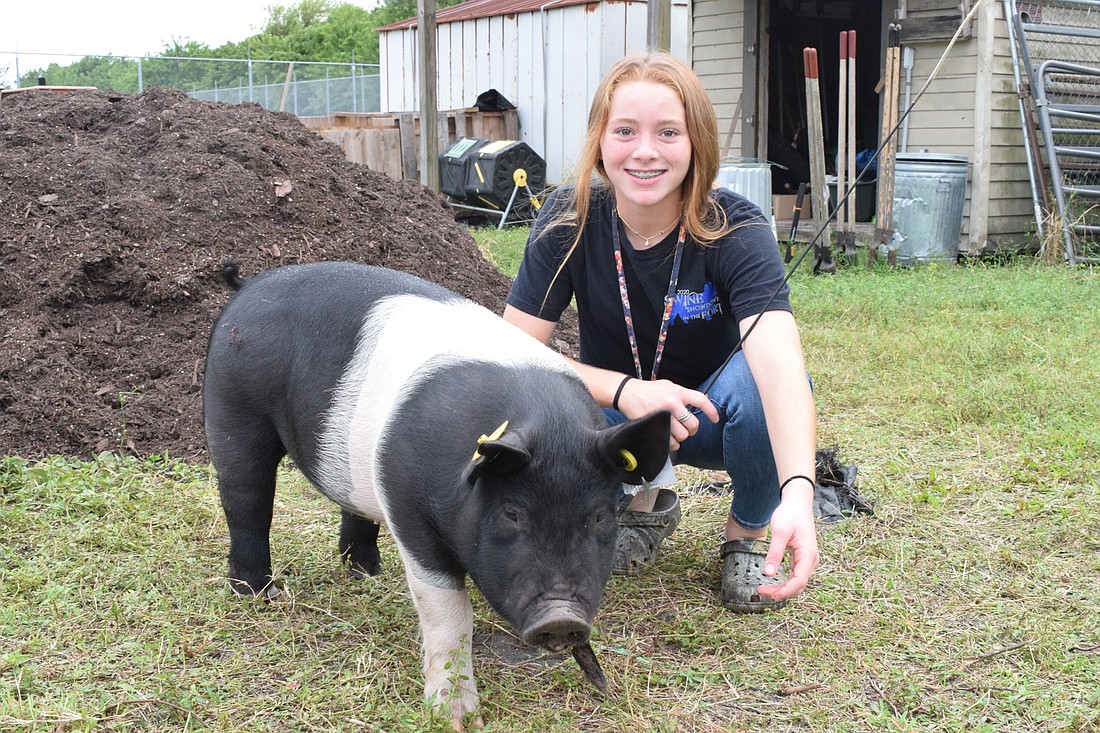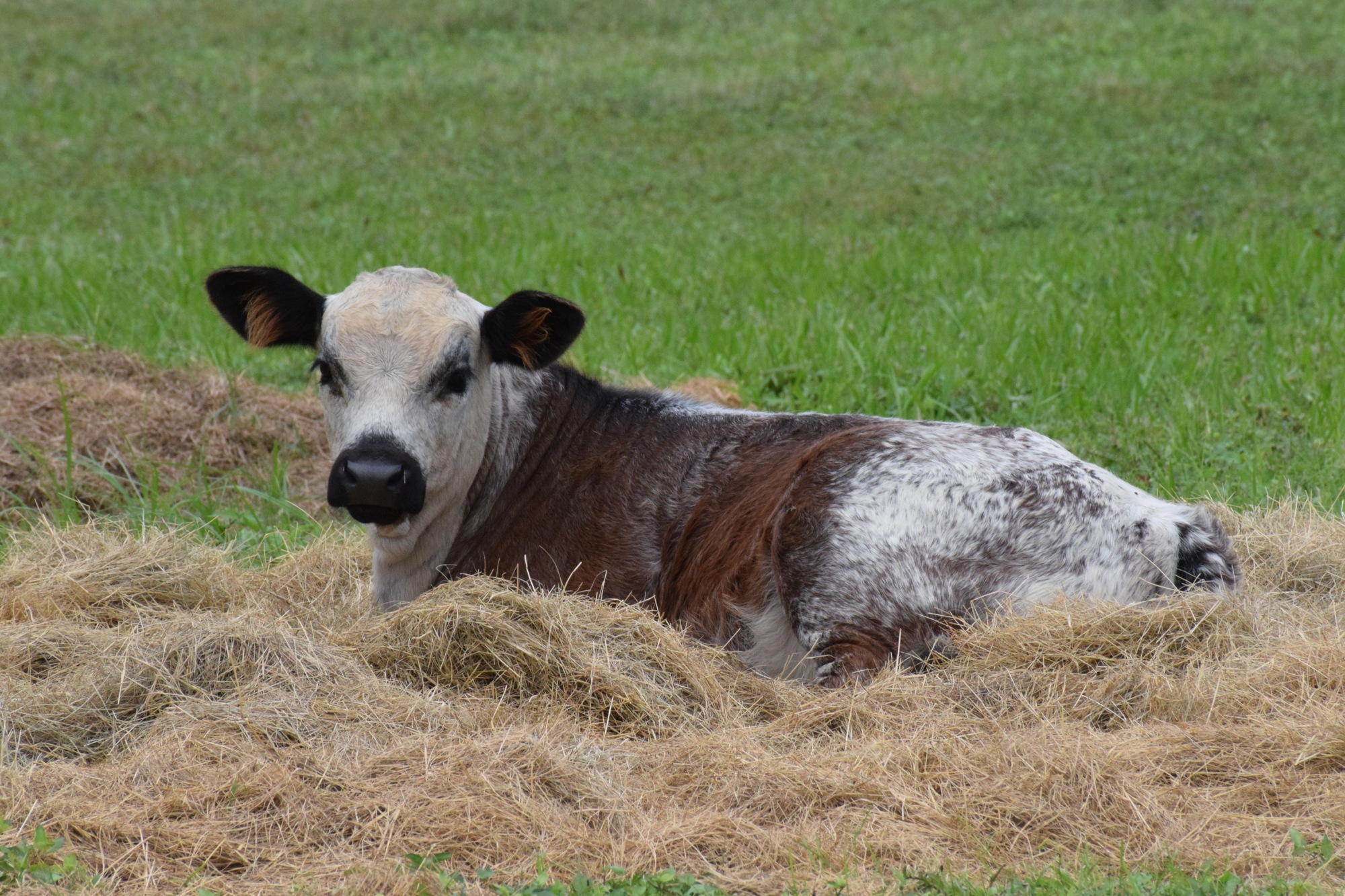- April 23, 2025
-
-
Loading

Loading

Aubrey Barak, an eighth grader at Carlos E. Haile Middle School, loves spending time with her pig, Gunner.
She said he has a fun personality and enjoys getting belly rubs. As soon as Barak starts rubbing his belly, he flops onto his side to relish the attention. Sometimes she will visit him in his pen, and he’ll start to chew on her shoes.
Barak is working with Gunner in preparation for the Manatee County Fair in January.
“I’m excited about being there,” Barak said. “I’m actually more excited than last year because my pig is eating better. I’m excited to see what the final weight will be.”
Unlike last year, Barak will have to adjust to the new protocols and procedures in place at the Manatee County Fair as a result of the pandemic.
Danny Alfonso, the manager of the fair, said 11 committees have been working in conjunction to ensure the fair happens as safely as possible.
Alfonso said the committees have come up with “several different” plans that can be put in place depending on how the pandemic develops and recommendations from Manatee County officials.
“We’re planning for a normal fair if COVID-19 is fine, and then if not, we’re going to have to not have quite as many vendors, so we can have the vendors set up socially distanced,” Alfonso said.
Dozens of Future Farmers of America members throughout schools in the greater Lakewood Ranch area are working with their animals to ensure they are fair-ready come January.

“The fair animal process has never stopped and never slowed down during COVID-19,” said McKenzie Gorskey, an FFA adviser at Lakewood Ranch High School. “We’ve seen all our upper-level students come back with a vengeance because they realize all that they could have lost with COVID-19. We’ve seen them wanting to explore new species or try new shows.”
The schedule for FFA has changed this year to limit the number of people and animals in the barn at once. Normally, swine and dairy are in the barn at the same time the first week of the fair with beef breeding and steers in the barn the second week.
This year, all animals are going to be on the fairgrounds for three days at a time, so there are no overlapping types of animals in the barn.
Alfonso said the fair is not limiting the number of students participating in FFA or 4-H exhibits as long as they meet fair requirements and rules. Last year, the fair had close to 1,000 students participating in fair activities from arts and crafts to plants to livestock.
Students have their own equipment and materials to care for their animals, practice social distancing and follow other Centers for Disease Control and Prevention guidelines while in the barns at school.
Karly Cohenour, an FFA adviser at Braden River High School, is looking forward to seeing her students achieve their goals, especially after they were not able to end last school year the way they wanted due to COVID-19.
“I feel students overall had a lot taken from them due to the pandemic,” Cohenour said. “As we see things open back up, I think [the fair] will be one of the big things they’ll get to do. Over time they’ll see the fruits of their labor and have that moment that everything is OK, and all their hard work has paid off.”
Jessica Jones, the FFA adviser at Haile Middle, said the new schedule could give her an opportunity to watch more of her students showing in the ring and be there for when they’re selling their animals rather than having to juggle multiple students at once because the animal shows overlap.
“[Students] want to see their teacher supporting them,” Jones said. “We’ll see how it goes and fully plays out. The way it looks on paper right now, I would think it would be nice to keep with it.”
The FFA programs at Haile and R. Dan Nolan middle schools are facing a decrease in members due to students being on different learning modalities and not being able to enroll in agriculture as an elective as a result of their learning modality.
Both middle school programs have between 30 and 35 students this year compared to between 60 to 100 students in past years.
The decrease in FFA membership and working during a pandemic has not deterred the members from being passionate and working hard on their projects.
“The students are going to shows, traveling with their animals and working just as hard as they would if there wasn’t the coronavirus because agriculture just doesn’t stop,” said Carolyn Gilbert, the FFA adviser at Nolan Middle. “We’re essential. Just because there’s a pandemic, it doesn’t stop. Our animals still have to eat. We still have to go out and feed it and take care of it.”
Haile Middle’s FFA program has its first calf, Norman, that was born on campus and is going to the fair.
“The kids are excited to show off what we’ve added to our herd and raised,” Jones said.